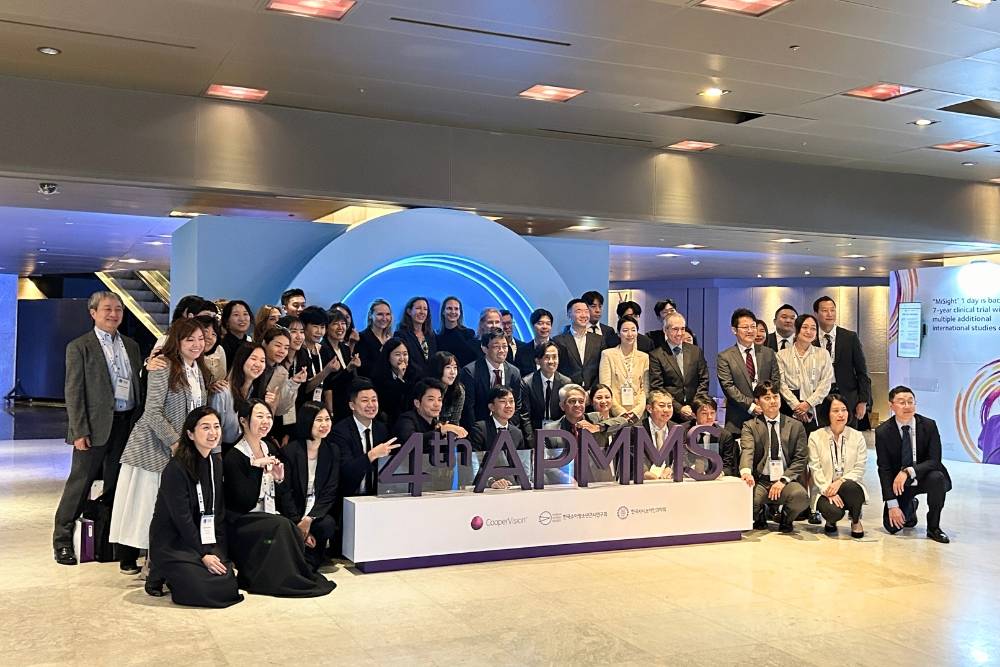“By 2050, one in two individuals globally will have myopia, with Singapore alone expecting prevalence rates as high as 80% by 2030.”
Myopia’s Rising Prevalence: A Global and Regional Challenge
Over the weekend, the 4th Asia-Pacific Myopia Management Symposium (APMMS) 2024 took center stage in Seoul, South Korea, as a collaborative hub for pioneering solutions and advancements in myopia management.
This year, the theme of APMMS is ‘Myopia Reframed: Shaping the Future of Eye Health’. The focus is on advancements in paediatric myopia management, early intervention, and cross-sector collaboration. The event aimed to redefine myopia management as an essential health measure and create actionable steps to curb the projected rise in myopia rates.
“By 2050, one in two individuals globally will have myopia, with Singapore alone expecting prevalence rates as high as 80% by 2030.” shared Dr. Foo Li Lian. She is the recently appointed Clinical Director of the Myopia Service at Singapore National Eye Centre.
This increase presents a major public health challenge, as high myopia can lead to complications like retinal detachment and myopic macular degeneration. This impacts one’s vision health long-term.
Read also: Myopia In Children – The Hidden Consequences of Blurred Vision
CooperVision’s Efforts to Elevate Awareness and Prevention
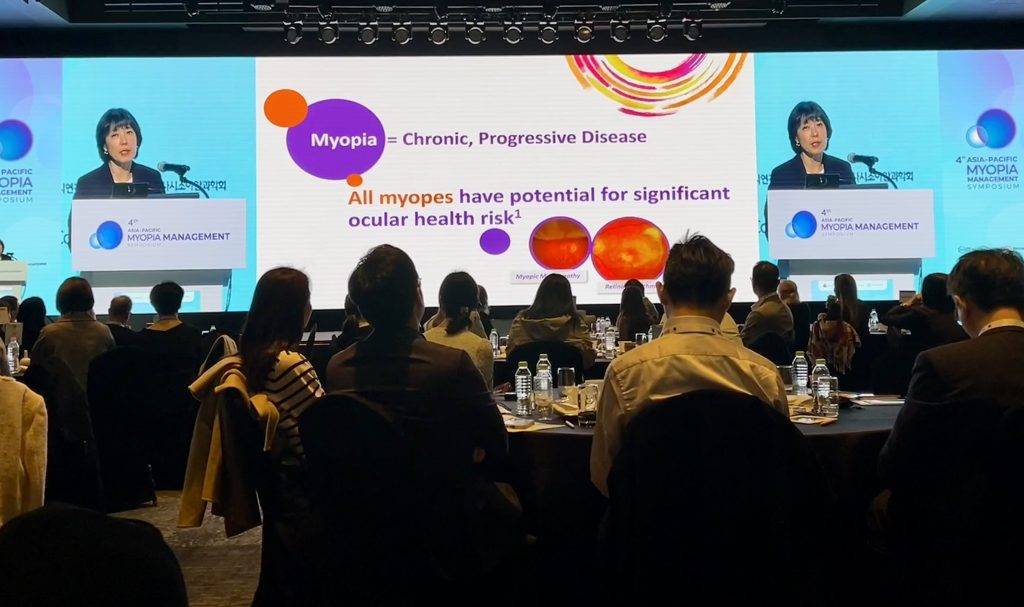
Kathy Park, President of CooperVision APAC, highlighted the company’s commitment to tackling myopia through a multifaceted approach. CooperVision collaborates actively with eye care professionals, policymakers, and educational institutions to raise awareness.
“Our goal is to redefine myopia management as a disease management imperative rather than a corrective vision option, especially for parents and children at risk.” Park noted.
CooperVision has put in extensive efforts to increase awareness among both professionals and the public. This includes partnerships with organisations such as the Korean Association of Paediatric Ophthalmology and Strabismus (KAPOS) in Korea, along with local associations in Taiwan and Singapore.
“We are advancing our message through multi-stakeholder engagement, empowering eye care professionals to educate parents on the urgency of early intervention and effective management,” explained Shila Gupta, Myopia Management General Manager at CooperVision Asia-Pacific.
This initiative has been pivotal in helping communities understand the importance of myopia control and the role early intervention plays in reducing long-term risks.
Dr. Foo also identified several key challenges that eye care professionals face when discussing myopia with parents.
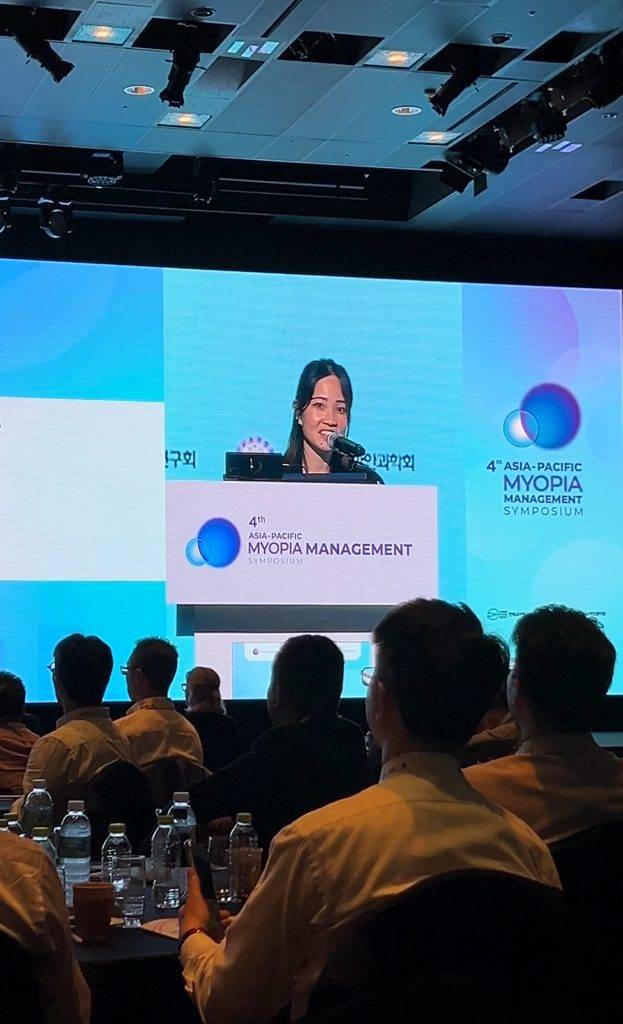
“Many parents still see myopia as a minor inconvenience, thinking it only requires stronger glasses over time,” she explained.
The cost and accessibility of myopia control treatments add further barriers, underscoring the need to convey myopia’s long-term health risks and the benefits of early intervention to both parents and healthcare providers.
Read also: Blurry Vision In Children – Why Control It Now By Dr Sun Chen-Hsin
Advancements in Myopia Control: The Ten-Year MiSight® 1 day Study
Among the highlights of APMMS was the presentation of the latest findings on MiSight® 1 day soft contact lenses, the only FDA-approved lens proven to slow myopia progression in children.
CooperVision’s ten-year clinical study on MiSight® 1 day confirmed its safety for long-term wear, with no adverse effects on corneal health after a decade of daily use.
“The results underscore MiSight® (1 day) as a safe, effective solution,” shared Dr. Foo. The MiSight® 1 day lenses allow active children to enjoy their day-to-day lives without the limitations of glasses.
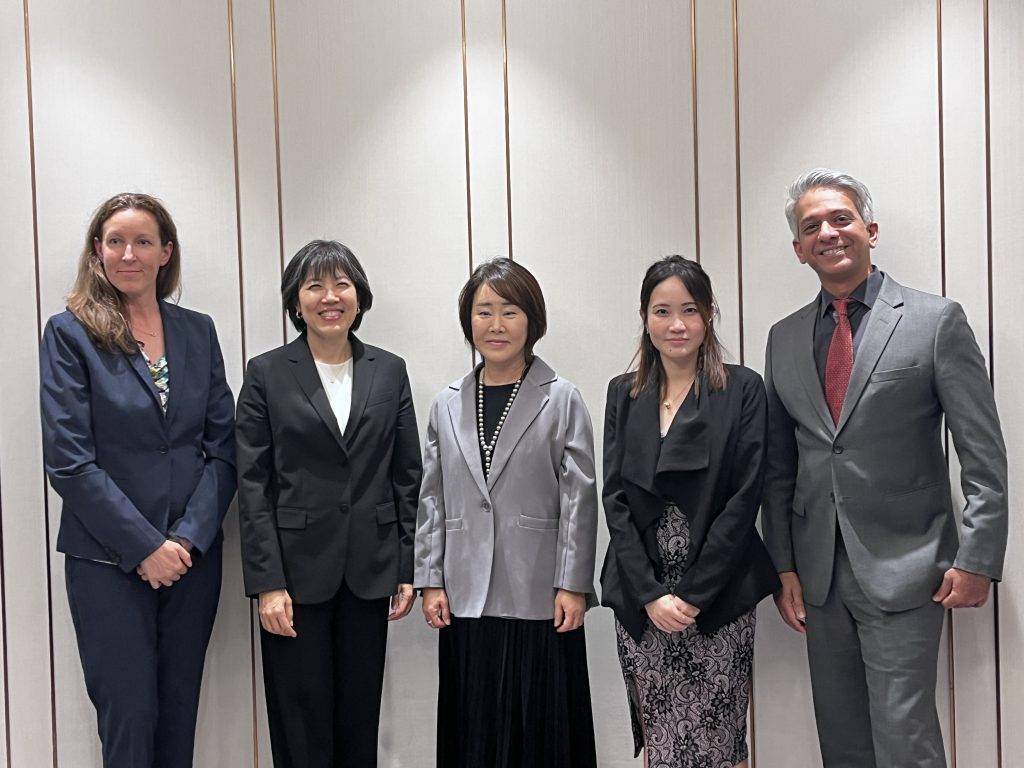
CooperVision also shared outcomes from its seven-year study on MiSight® 1 day, emphasising that these lenses retain myopia control benefits even after treatment ends. Unlike other options, like atropine drops that can cause a rebound effect, MiSight® 1 day offers consistent benefits.
Additionally, the studies showed that 9 out of 10 children preferred MiSight® 1 day over glasses. This adds an element of convenience and confidence to their lives. Another study, led by Professor Nicola Logan of Aston University, highlighted the safety of these lenses after ten years, with no difference in corneal health compared to non-lens wearers, reassuring parents and practitioners alike.
Jennifer Lambert, Senior Director of Global Myopia Management at CooperVision, reflected on the broader impact of these findings.
“Knowing we have safe, effective solutions for myopia gives us the confidence to empower parents and practitioners alike. Every step toward slowing myopia progression is a step toward healthier, clearer futures for these kids.”
APMMS 2024: A Hub for Global Collaboration
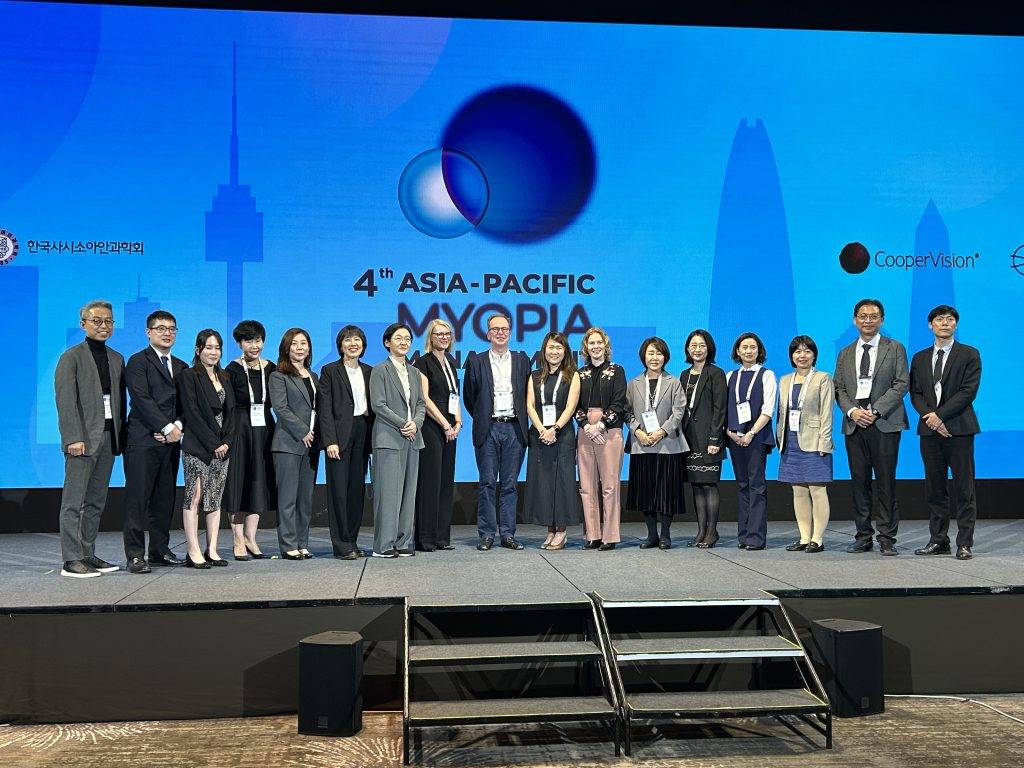
Drawing over 2,200 attendees from healthcare, academia, and the public sector, APMMS 2024 was a powerhouse of international collaboration. Feedback from participants highlights the event as a critical knowledge-sharing platform that goes beyond information exchange, fostering cross-regional partnerships in the Asia-Pacific to combat rising myopia rates.
“APMMS 2024 has been a pivotal event in advancing myopia management across the APAC region.” Gupta shared.
Looking ahead, CooperVision plans to host APMMS 2025 as it continues its commitment to expanding knowledge-sharing and setting new standards in myopia management.
Park added, “We will keep building on this momentum, empowering eye care professionals and enhancing collaborative efforts.”

